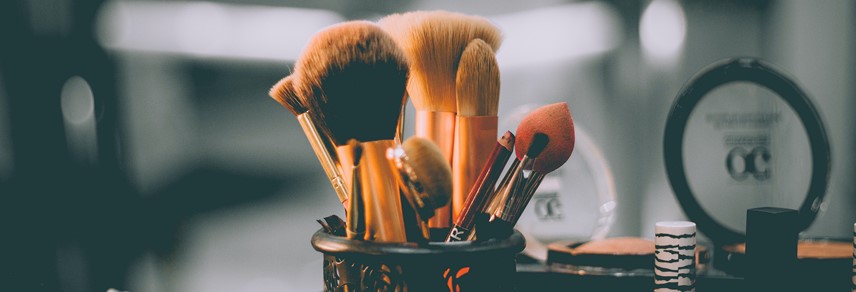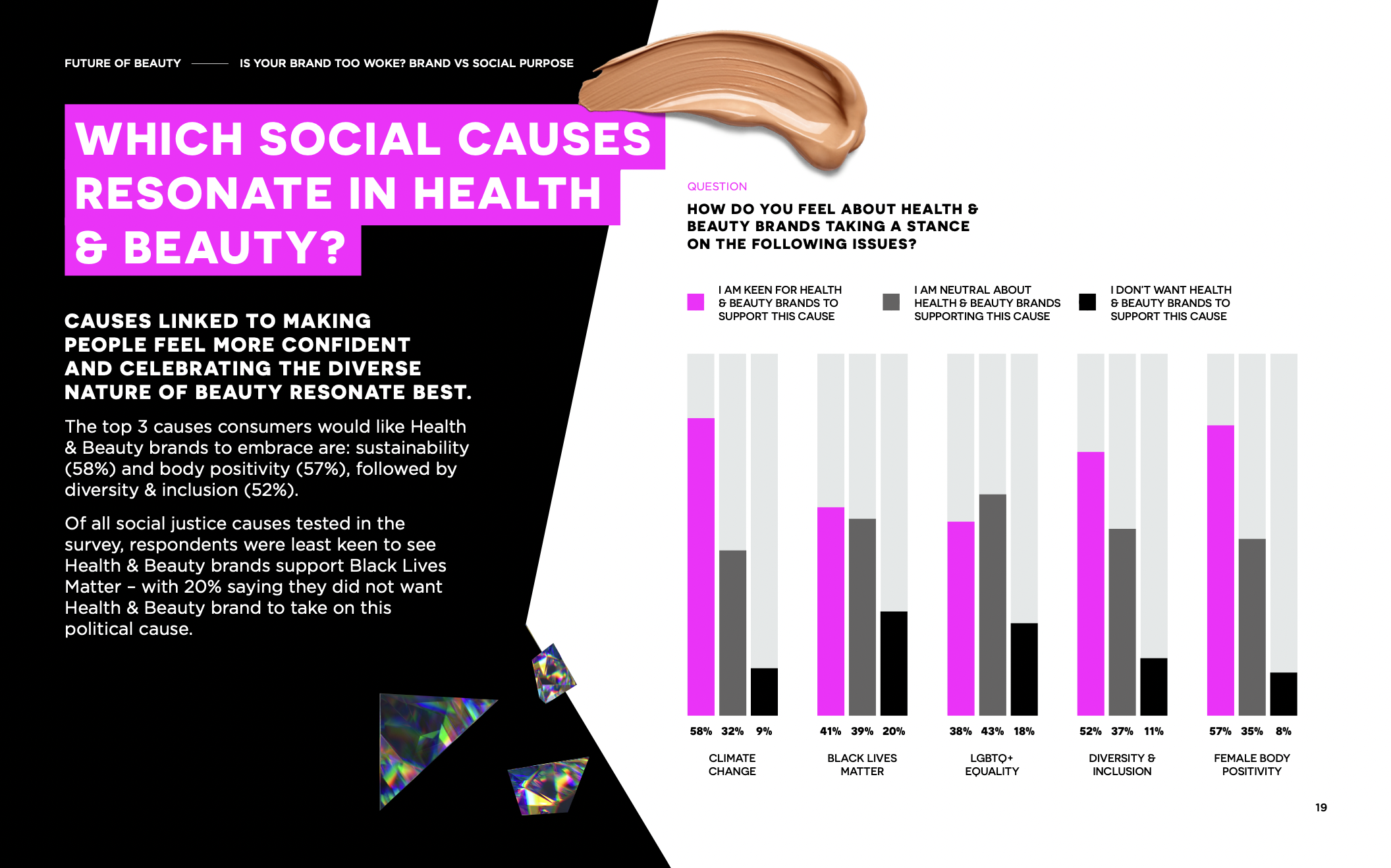
WOKE-WASHING IN BRAND COMMUNICATIONS ON THE RISE, RESEARCH SHOWS
The Pull Agency commissioned research looking at consumer attitudes towards corporate social responsibility in the health and beauty industry. It reveals that only 22% of consumers are familiar with the term ‘brand purpose’, while 41% agree ‘greenwashing’ and ‘woke-washing’ in health and beauty comms is becoming more noticeable.
Specialising in healthcare and beauty brands, the Pull Agency, commissioned the survey of 2,000 nationally representative consumers in the UK. The research looked at consumer understanding of brand purpose and CSR within the healthy and beauty sector.
The Pull Agency says woke-washing refers to brands faking sustainability credentials or interest in social issues like Black Lives Matter. Nearly half of those surveyed agreed that ‘green-washing’ and ‘woke-washing’ is becoming more noticeable in the health and beauty sector.
Kathrin Rodriguez-Bruessau, head of brand strategy at The Pull Agency, says, “Trying to be a more ethical business actually carries risks. Several healthcare and beauty brands have got in trouble for perceived woke-washing and superficial attempts at brand activism. People are getting much smarter at identifying what’s real and what’s not and clearly irritated by inauthentic looking claims.”
The survey found that 68% of consumers are uneasy or unsure about health and beauty brands teaching or promoting certain social topics. Consumers wanted health and beauty brands to focus on ethical sustainability rather than brand purpose, with only 22% of UK consumers being familiar with the term.
Rodriguez-Bruessau says, “We’re certainly not suggesting that brands shouldn’t promote social purpose, but if they decide it’s the right path to take, they must consider how it’s reflected in their ads, taking into account the consumer viewpoint No matter how well intended their chosen social cause, if they fall short of people’s expectations on the basics it’s evident that news around a campaign could turn from worthy to inauthentic woke-washing in the blink of an eye.”
The research found 58% of consumers said they would like to see more support for female body positivity, while 52% would like to see more support for diversity and inclusion.
When it comes to representation, 43% ranked ‘advertising that shows a realistic set of models or actors to reflect real users of the brand’ as the number one thing they want to see. This was followed by ‘advertising that uses a range of models/actors such as different ages, sizes, gender, ethnicities or disabilities to be inclusive’ for 35%.
“While the marketing world would have us believe that a grandiose brand social purpose is paramount, consumers don’t seem to care as much or really understand the concept. According to most people, the first step is to just get the basics right and be a decent corporate citizen,” says Rodriguez-Bruessau.
Find the full report here.



